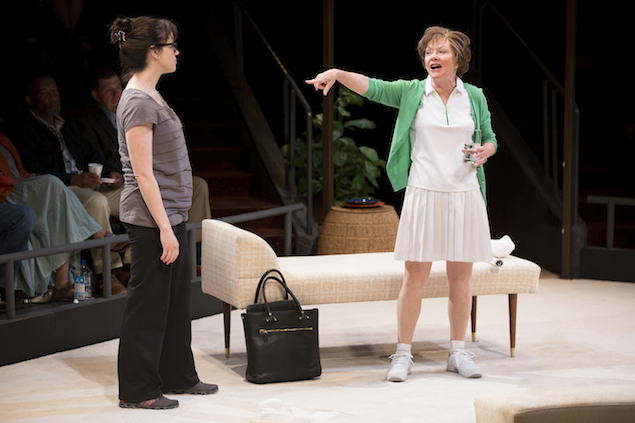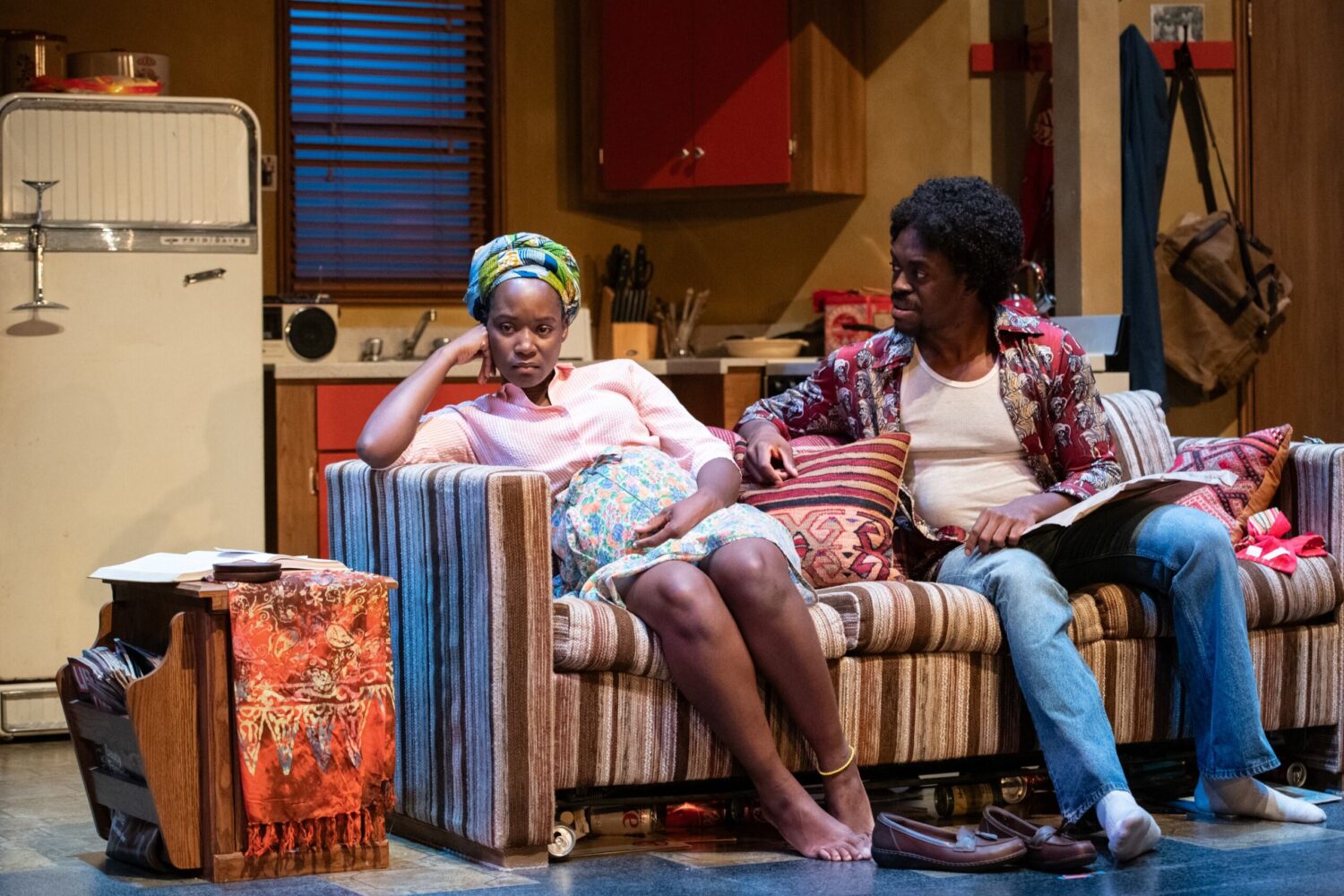
The toxic stew of long-buried family secrets, selective serotonin reuptake inhibitors, barbed endearments, and bourbon that festers in Jon Robin Baitz’s Other Desert Cities—currently having its local premiere at Arena Stage—is the kind of grim but enthralling mix that makes for gut-punching theater, in which the “indentured servitude of having a family” is put under a microscopic lens. As Arundhati Roy once put it, the trouble with families is that, “like invidious doctors, they [know] just where it hurts.”
The 2011 Pulitzer finalist, superbly directed by Kyle Donnelly, is set in the literal and metaphorical desert of Palm Springs, where B-list matinee idol turned GOP honcho Lyman Wyeth (Larry Bryggman) lives with his wife, the caustically funny Polly (Helen Carey), in a sprawling sandstone house with a fire pit in the coffee table (the set is by Kate Edmunds). Daughter Brooke (Emily Donahoe) and son Trip (Scott Drummond), who have the guttural one-syllable names so beloved by WASPs in common but not much else, are home for the holidays, and Aunt Silda (Martha Hackett) is fresh from a drying-out spell in rehab after a long period of sobriety.
This already treacherous pile of kindling is set aflame with the revelation that Brooke, recovering from a serious bout of depression, has written a memoir, soon to be serialized in the New Yorker. The news is horrifying to her staunchly Republican parents, who’ve spent the last 20 years pretending to be the embodiment of the American Dream, despite the fact that Polly, a witch disguised as Shirley MacLaine, says things like, “Sarcasm is the purview of teenagers and homosexuals.” (Her sister, Silda, declares after one restless night of sober sleep that she has “more Nazi dreams than Elie Wiesel.”)
Terrible families have always made for fantastic drama, and Other Desert Cities nails the cocktail of comforting familiarity and inevitable turmoil that comes with any kind of family gathering. But Baitz cleverly adds a new element: the notable absence of a third Wyeth child, Henry, whose turbulent past is revealed in fragments over the course of the play. Donahoe’s Brooke has been rendered barely functional by the hole her brother left in her life, and as a writer, she has the Gen-Y commitment to truth that bristles against her parents’ glossy, shiny exterior. Trip, the peacemaker, seeks solace in weed and promiscuity, even as he plays mediator between his vulnerable sister and his endlessly shrewish mother.
Bryggman, recognizable from his Emmy-winning, four-decade stint on As the World Turns, is simply outstanding as Lyman, dominating the Fichandler’s space with his booming voice and needy charm. Carey’s Polly gets most of the funniest lines, and she delivers them with aplomb, whether commenting dryly that “despair runs in this family” or tempting her sister with a snifter clinking with ice cubes and whisky in much the same manner one imagines the serpent offering Eve an apple. As Brooke, Donahoe comes into her own in the second act, although she has fewer lines—her reactions to the revelations offered by everyone else are mesmerizing. Drummond gives a nuanced and compelling performance as one perplexed by his family but equally defensive of it.
In mining the dynamic that comes into play when people’s fickle and unreliable memories collide, Baitz has crafted a funny, darkly accurate portrait of a slice of American life. Like Hackett’s Silda, it’s hard to resist the temptation to slide into the bottom of a cocktail glass after confronting so much ragged hurt, but it’s a powerful and moving experience, nonetheless.
Other Desert Cities is at Arena Stage through May 26. Running time is about two and a half hours, including one intermission. Tickets ($40 and up) are available via Arena’s website.

















